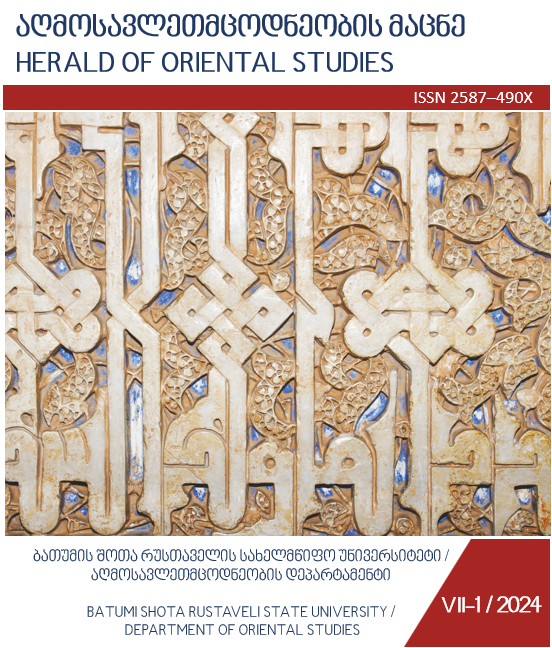The Sanjak-Beg Abashidzes’ land ownership-land use in Adjara during the rule of the Ottoman and Russian empires
The Sanjak-Beg Abashidzes’ land ownership-land use in Adjara during the rule of the Ottoman and Russian empires
Author(s): Turmanidze OtarSubject(s): History, Political history, Recent History (1900 till today), 16th Century, 17th Century, 18th Century, 19th Century, Pre-WW I & WW I (1900 -1919), Interwar Period (1920 - 1939)
Published by: ბათუმის შოთა რუსთაველის სახელმწიფო უნივერსიტეტი, ჰუმანიტარული მეცნიერებატა ფაკულტეტის აღმოსავლეთმცოდნეობის დეპარტამენტის „ელექტრონული ჟურნალი“.
Keywords: land ownership; Tanzimat, Ashari; rent; buying-selling;
Summary/Abstract: The Sanjak-Beg Abashidzes from Batumi settled in Adjara from Imereti, namely from Saeri-Stavo of Argveti, in the 16th century. Adjara was then conquered by the Ottomans. The Abashidzes converted to Islam here and entered the service of the Ottoman state. The Ottoman Sultan gave them lands and estates and gave them the title of Sanjak Beg of Lazistan.The Abashidzes were large landowners in Adjara. The article discusses the land ownership and land use issues of the Sanjak-Beg Abashidzes of Batumi. After the implementation of the agrarian reform (Tanzimat) in the Ottoman Empire, the Agha-Begs no longer had private property. In return, they were assigned hereditary pensions, but the Abashidzes, like the rest of the Agha-begs of the Ottoman Empire, were left with the right of ownership and use.During the Ottoman rule, there was a continuous struggle between the state agencies and local landowners regarding land and estates. This struggle continued during Russian domination. During this period, the Sanjak-Beg Abashidzes from Batumi started mass sale of land and estates. They were also engaged in leasing and mortgaging pieces of land. The income in a form of natural products or money received from this was the main source of their existence. The article discusses the legal status of the Sanjak-Beg Abashidzes of Batumi. It is emphasized that during the Soviet regime they suffered severe economic and political oppression.
Journal: საერთაშორისო სამეცნიერო ჟურნალი „აღმოსავლეთმცოდნეობის მაცნე“
- Issue Year: 7/2024
- Issue No: 1
- Page Range: 108-141
- Page Count: 34
- Language: English, Georgian

